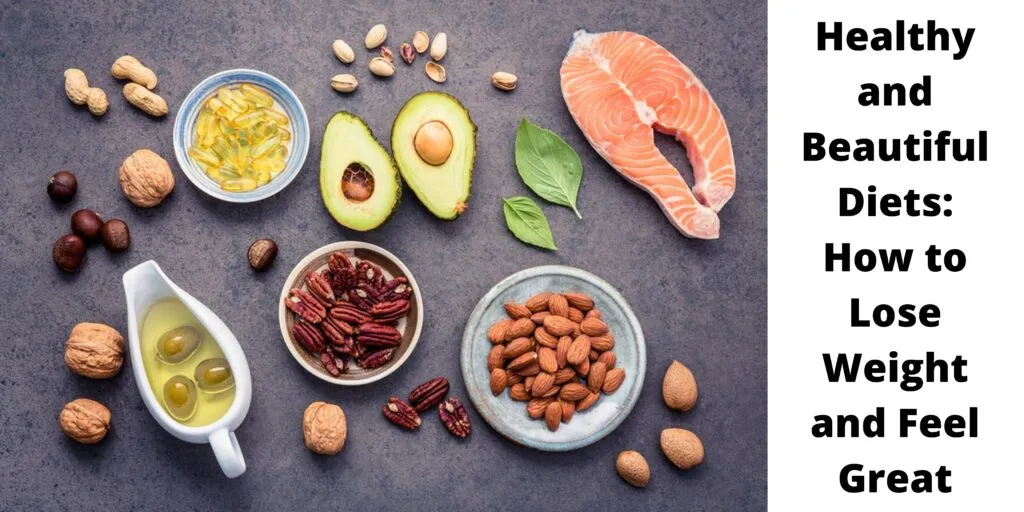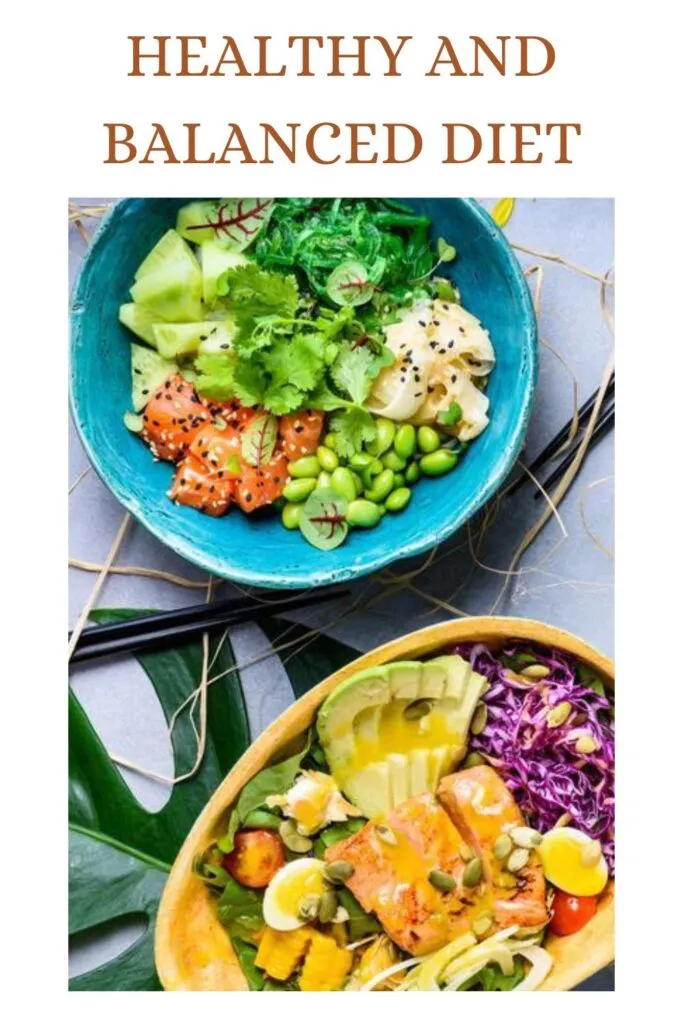There are so many diets out there that it can be hard to know which one is right for you.
Do you want to lose weight?
Feel great?
Have more energy?
Let’s discuss different diets that can help to achieve all of these goals!
Healthy And Balanced Diet
This type of diet is based on eating healthy foods that are low in calories and fat. You should also make sure to get plenty of exercises. This type of diet will help you lose weight, feel great, and have more energy.
A healthy and balanced diet is one that includes a variety of nutrient-rich foods. The key is to eat the right amount of each food group, in order to get the nutrients your body needs. For example, you need to eat more fruits and vegetables than you do grains or protein. This is because fruits and vegetables are packed with vitamins, minerals, and fiber. They are also low in calories, which helps to keep your weight in check.
Grains should make up about half of your daily intake. Choose whole-grain options whenever possible, as they are higher in fiber and nutrients than refined grains. Protein is an important part of a healthy diet, but it is important to choose lean sources of protein. Good sources of lean protein include chicken, fish, tofu, and legumes.
In addition to eating the right foods, it is also essential to eat the proper portions. A good rule of thumb is to fill half of your plate with fruits and vegetables, one-quarter with grains, and one-quarter with protein. This will help you get the nutrients you need without overeating.
A healthy diet should also include plenty of water. Water helps to flush out toxins from your body and keep you hydrated. aim to drink eight glasses of water each day. You can also get your daily dose of water by drinking herbal tea or eating water-rich fruits and vegetables such as cucumbers and watermelon.
Detox Diet
This type of diet is based on eliminating toxins from your body. You can do this by drinking lots of water, eating healthy foods, and taking supplements.
There are many different types of detox diets, but they all have one goal in common: to rid the body of toxins. These toxins can come from the food we eat, the air we breathe, and even the water we drink. While our bodies are designed to handle some toxins, too much can lead to serious health problems.
Detox diets usually involve eating certain foods and avoiding others. Common foods that are included in a detox diet are fruits and vegetables, whole grains, legumes, and lean protein. Foods that are typically avoided include processed foods, sugar, caffeine, alcohol, and artificial additives.
Most detox diets last for a week or two, although some people may choose to do a longer cleanse. During a detox, it’s important to drink plenty of water and avoid strenuous activity. This will help your body to flush out toxins and give your digestive system a break.
If you’re considering a detox diet, be sure to talk to your doctor first. Some people may not be able to tolerate the changes in their diet, and there are certain medical conditions that can be made worse by a sudden change in diet. Detox diets are generally safe for most people, but it’s always best to get the green light from your doctor before starting any new diet or cleanse.
Low Carb Diet
A low carb diet is a great way to lose weight and improve your health. This diet involves eating foods that are low in carbohydrates, such as vegetables, fruits, and lean proteins. This type of diet has been shown to help people lose weight, lower their cholesterol levels, and improve their blood sugar levels. There are many different ways to follow a low carb diet, but the most important thing is to make sure that you are getting enough nutrients from your food.
If you want to try a low carb diet, there are a few things that you should keep in mind. First, you need to make sure that you are getting enough protein. Protein is essential for maintaining muscle mass and keeping your metabolism high. You can get protein from lean meats, poultry, fish, and tofu. You should also make sure that you are getting plenty of vegetables. Vegetables are a great source of fiber and nutrients, and they can help you feel full. Finally, you need to make sure that you are drinking enough water. Water will help to keep your body hydrated and will also help to flush out toxins.
If you follow these tips, you will be well on your way to success with a low carb diet. Remember to consult with your doctor before starting any new diet or exercise program. And always listen to your body; if something doesn’t feel right, stop doing it!
Keto Diet
If you’re like most people, you probably think of the keto diet as a way to lose weight. Keto Diet is the opposite of Low Carb Diet. Read about the difference between low carb diet and keto here. And while weight loss is certainly one of the many benefits of following a ketogenic lifestyle, it’s far from the only one. In fact, the keto diet can also help improve your mental clarity, increase your energy levels, and stabilize your blood sugar levels.
So how does this all work? Let’s take a closer look at the keto diet menu and how it can help you achieve your health and fitness goals.
The first thing you need to know about the keto diet is that it’s based on a high-fat, low-carbohydrate eating plan. This means that you’ll be getting most of your calories from fat, with only a small amount coming from carbohydrates.
One of the benefits of this type of diet is that it can help you lose weight quickly. In fact, many people who follow a keto diet menu report losing up to 20 pounds in just a few weeks!
Another benefit of the keto diet is that it can help improve your mental clarity. When you eat fewer carbohydrates, your body has to break down more fats for energy. This process provides your brain with a steady supply of ketones, which are known to be an effective cognitive booster.
Finally, the keto diet can also help stabilize your blood sugar levels. When you eat a high-fat diet, your body doesn’t have to work as hard to process glucose. This can help you avoid the blood sugar spikes and crashes that can occur when you eat a lot of refined carbohydrates.
If you’re interested in trying the keto diet, there are a few things you should keep in mind. Again, be sure to talk to your doctor before making any changes to your diet. He or she can help you determine if the keto diet is right for you and offer advice on how to make the transition safely.
Second, be sure to start slowly. If you’re not used to eating high-fat foods, it may take a little time for your body to adjust. Start by adding a few higher-fat items to your diet each week and gradually increase the amount you eat.
Finally, don’t be afraid to experiment with different keto diet menus. There are a lot of great recipes out there that can help you stick to your goals while still enjoying delicious food. With a little trial and error, you’re sure to find a menu that works for you!
If you have been struggling to lose weight, feel great, and have more energy, then give one of these diets a try! Remember to consult with your doctor before starting any new diet or exercise program


